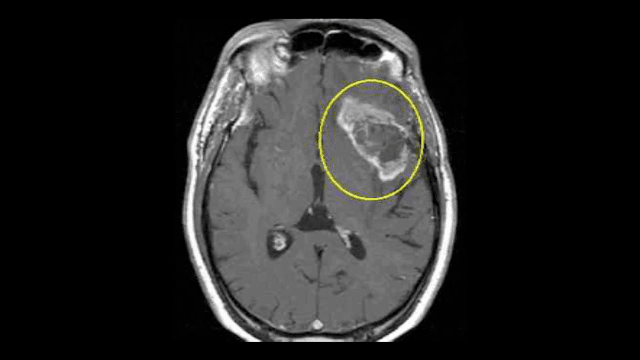Brain Cancer Causes And Symptoms
Brain cancer causes and symptoms - Our brains are one of the most important organs of our body. Of course, our senses, speech, and movements are all driven by the brain. The right side of the brain drives the left side of the body and vice versa.
Brain cancer develops when a brain tumor develops a malignant tumor, which disrupts the nerve cells and thereby disrupts the functions of that part of the brain. Also, brain cancer may be the result of another form of cancer that flows to the brain through the lymph and blood. These metastases are in the brain and grow further. The effect is about the same, because here too, healthy tissue is displaced and destroyed by the malignant swelling.
The causes of primary brain cancer are not known for now: The chance of developing a brain tumor is slightly greater when brain tumors occur in the family. Exposure to specific chemicals can also be a cause, but for the rest, science is still in the dark for the cause of cancer in the brain. Brain cancer, unfortunately, occurs quite often and occurs as often in women as in men.
What are the symptoms of brain cancer or tumor?
Because each part of the brain fulfills a different function, the symptoms of primary (brain tumor) or secondary (metastasis) brain cancer may be very different. When there is a tumor in the part of the brain that regulates our emotions, a patient will have different complaints than when a sore occurs in the part of the brain that drives our speech.
In general, severe headache and recurrent nausea or vomiting are signs that may indicate cancer in the brain. Also, as a result of the brain's stress exerted on the brain, convulsions and epileptic seizures can occur.
In addition, neurological problems and sudden or progressive changes in body functions can be a sign of brain cancer. Examples of such symptoms and complaints of a brain tumor include:
After diagnosis using CT scans and MRI, surgery, medication, chemotherapy or radiation or a combination of these treatment options are chosen. The treatment will be specifically tailored to where the brain tumor is located and whether this is a place in the brain that is safe to operate or not.
When there is a brain tumor, the therapy will be tailored to the type of cancer with which it is concerned. A seeding does not consist of brain cancer cells, but for example, breast cancer or lung cancer cells. The metastases will thus be treated as the primary form of cancer is treated elsewhere in the body. Sometimes one has to look for where exactly the body is cancer and what is actually the cause of metastases in the brain.
Brain cancer develops when a brain tumor develops a malignant tumor, which disrupts the nerve cells and thereby disrupts the functions of that part of the brain. Also, brain cancer may be the result of another form of cancer that flows to the brain through the lymph and blood. These metastases are in the brain and grow further. The effect is about the same, because here too, healthy tissue is displaced and destroyed by the malignant swelling.
The causes of primary brain cancer are not known for now: The chance of developing a brain tumor is slightly greater when brain tumors occur in the family. Exposure to specific chemicals can also be a cause, but for the rest, science is still in the dark for the cause of cancer in the brain. Brain cancer, unfortunately, occurs quite often and occurs as often in women as in men.
What are the symptoms of brain cancer or tumor?
Because each part of the brain fulfills a different function, the symptoms of primary (brain tumor) or secondary (metastasis) brain cancer may be very different. When there is a tumor in the part of the brain that regulates our emotions, a patient will have different complaints than when a sore occurs in the part of the brain that drives our speech.
In general, severe headache and recurrent nausea or vomiting are signs that may indicate cancer in the brain. Also, as a result of the brain's stress exerted on the brain, convulsions and epileptic seizures can occur.
In addition, neurological problems and sudden or progressive changes in body functions can be a sign of brain cancer. Examples of such symptoms and complaints of a brain tumor include:
- Problems with sensory perception
- Infringement of speech or understanding of written or spoken language
- Difficult with coordinating movements
- Difficult to walking or maintaining the balance
- Weakness or spasms of muscles in the body
- Deafness or tingling in arms and/or legs
- Memory problems or thinking
After diagnosis using CT scans and MRI, surgery, medication, chemotherapy or radiation or a combination of these treatment options are chosen. The treatment will be specifically tailored to where the brain tumor is located and whether this is a place in the brain that is safe to operate or not.
When there is a brain tumor, the therapy will be tailored to the type of cancer with which it is concerned. A seeding does not consist of brain cancer cells, but for example, breast cancer or lung cancer cells. The metastases will thus be treated as the primary form of cancer is treated elsewhere in the body. Sometimes one has to look for where exactly the body is cancer and what is actually the cause of metastases in the brain.
*Image source : Vimeo
References :

Post a Comment for "Brain Cancer Causes And Symptoms"